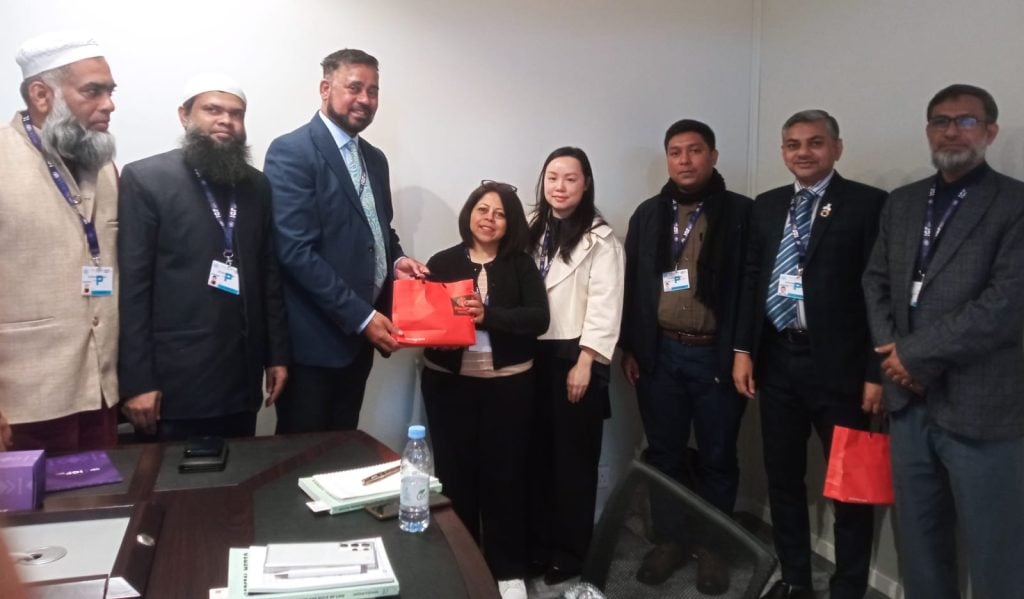The United Nations Internet Governance Forum (UN IGF) has called on Bangladesh to utilize digital transformation as an effective tool for social development and sustainability in advancing Web 4.0. Highlighting the need for a research paper on Bangladesh’s stance regarding the Global Digital Compact aligned with the SDGs, the forum has emphasized the importance of preparing for the next 25 years of digital governance.
The UN IGF has pledged to work closely with the Bangladesh Telecommunication Regulatory Commission (BTRC) and the Bangladesh Internet Governance Forum (BIGF) to determine the framework for digital governance in Bangladesh, including who will manage it and how. These commitments were discussed during bilateral meetings held at the recently concluded 19th UN IGF in Riyadh, Saudi Arabia.
Participants of the forum stressed the importance of local problem-solving through technological innovation, artificial intelligence (AI), and multistakeholder participation in digital governance. Discussions also focused on maximizing the benefits of digital innovations and addressing risks associated with technological progress, ensuring fairness, equity, and accountability in the digital space.

Mohammad Abdul Haque Anu, Secretary-General of BIGF, stated, “Web 4.0 is introducing a new paradigm in the internet world, requiring significant policy decisions and potential new legislation. Discussions revolved around how the UN IGF and regional IGFs can collaborate to address these emerging challenges.” He further noted the profound impact of AI on laws, commerce, and social structures globally, now integrated with the emergence of Web 4.0.
The bilateral meetings, held on December 18 during the forum’s sidelines, included discussions between Bangladesh’s delegation and key figures such as Anja Gengo, Associate Programme Expert of the UN IGF; Amrita Choudhury, Chair of the Asia Pacific Regional Internet Governance Forum (APrIGF); Gitanjali Saha, Coordinator of the World Summit on the Information Society (WSIS); and Jennifer Chung, Vice President of DotAsia.
The meetings underscored the need for inclusive governance structures in cyberspace, enhanced youth and local participation in IGF processes, and collaboration with Bangladesh’s Ministry of ICT and Foreign Affairs to solidify the country’s position in the Global Digital Compact.

The forum, held from December 15–19 at the King Abdulaziz International Conference Center in Riyadh, saw Bangladesh’s delegation comprising nine representatives from government, private sector, academia, and civil society. The delegation was led by Brigadier General Mohammad Khalil-Ur-Rahman, Director General of Systems and Services at BTRC, and included prominent figures such as Mohammad Abdul Haque Anu, Vice Chairperson Md. Saimum Reza Talukdar, and Professor Md. Rakibul Haque from Dhaka University, among others.
Khondaker Hasan Shahriar, Chair of Bangladesh Lawyers Internet Governance Forum and a participant, remarked, “In our meeting with the UN IGF Secretariat, we highlighted Bangladesh’s human rights situation, the conditions of children and youth, and emphasized enriching internet governance through local-level partnerships.” Both parties agreed to work closely on effective initiatives in the future, with the UN committing to supporting these endeavors.
The forum featured discussions on inclusion, digital equity, emerging technologies, and challenges, culminating in a commitment to strengthening global digital cooperation. The next IGF will be held in Oslo, Norway, in 2025, focusing on making the internet safer, more inclusive, and a transformative tool for global progress.



















